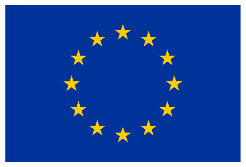AOS-SAMOS
Costs, Funding and Accommodation
The UCT Postgraduate funding office (PGFO) administers and supports postgraduate student funding at UCT. The contact information for the various departments is available here. The PGFO maintains a noticeboard outlining all available funding opportunities here.
Remember, when applying for funding, we suggest that you take the time to look through the available information before contacting the funding office. Grants may be available, but applicants need to consider self-funding. Applicants are encouraged to apply for multiple funding opportunities to enhance their chances for success. For instance, if applying for NRF funding, you should also apply for UCT internal funding through the PGFO.
The 2025 fees are outlined below and are structured according to the UCT taught Masters fee. Please check the fees handbook towards the end of January next year for the updated costs for 2026.
| For South African Students: | |
| Coursework fees BIO5013Z + (BIO5014Z or SEA5011Z): | R36 980 |
| BIO5015W Dissertation fees: | R37 780 |
| Total paid by South African Students: | R74 760 |
| For SADC Students**: | |
| Coursework fees: | R36 980 |
| Dissertation fees: | R37 780 |
| Non-refundable Administration Service Fee: | R5 300 |
| Total paid by SADC students: | R80 060 |
| ** “For the purposes of fees – Citizens and Permanent Residents of the SADC countries are treated the same as South African Residents. (Note that study visa regulations, etc. do still apply) The SADC member countries are Angola, Botswana, Democratic Republic of Congo, Lesotho, Madagascar, Malawi, Mauritius, Mozambique, Namibia, Seychelles, South Africa, Swaziland, Tanzania, Zambia, and Zimbabwe.” Extract from UCT Fees Handbook 2024. | |
| For students from Africa, but non-SADC countries: | |
| Coursework fees: | R36 980 |
| Dissertation fees: | R37 780 |
| International fees: | R47 600 |
| Non-refundable Administration Service Fee: | R5 300 |
| Total paid by non-SADC African students: | R127 660 |
| For International students: | |
| Coursework fees: | R36 980 |
| Dissertation fees: | R37 780 |
| International fees: | R63 700 |
| Non-refundable Administration Services Fee: | R5 300 |
| Total paid by international students: | R143 730 |
Funding Opportunities
The UCT Postgraduate funding office (PGFO) administers and supports postgraduate student funding at UCT. The contact information for the various departments is available here. The PGFO maintains a noticeboard outlining all available funding opportunities here.
Remember, when applying for funding, we suggest that you take the time to look through the available information before contacting the funding office. Grants may be available, but applicants need to consider self-funding. Applicants are encouraged to apply for multiple funding opportunities to enhance their chances for success. For instance, if applying for NRF funding, you should also apply for UCT internal funding through the PGFO.
- NRF SAMOS Funding
Successful applicants to the AOS-SAMOS programme, who meet the DSTI-NRF Postgraduate Scholarship eligibility criteria, will be able to benefit from a specific DSTI-NRF bursary. All applicants who intend to benefit from a bursary must register on the NRF Connect website before 31 August 2025, with the same ID number used for the application to the Masters programme.
Applicants are strongly encouraged to consider the DSTI-NRF Postgraduate Scholarship Framework for 2026 Funding before applying to the programme.
All postgraduate call documents can be accessed via the NRF website: https://www.nrf.ac.za/funding/nrf-call-for-proposals-for-funding-in-2025-and-2026/.
All NRF funding enquiries can be forwarded to nrfdasupport@uct.ac.za or telephone 021 650 3622 and select option 3.
NOTE: Frequently Asked Questions for Postgraduate Funding 2025
University of Cape Town Funding
Funding for South African Students:
You can apply for funding directly from UCT by completing the Postgraduate Funding Application as part of your application for admission to UCT.
The closing dates for the different bursaries and scholarships differ; please contact the Postgraduate Office PGFO for more information on the closing dates.
Funding for International Student:
UCT offers a LIMITED number of scholarships available for international and refugee students. UCT international and refugee student scholarships are NOT full-cost awards due to limited funding. Please obtain sufficient funding from other sources. Before applying to the Postgraduate Funding Office for funding, you must submit your UCT admissions application.
Information and the Application Form for funding (10C) can be sourced from the Postgraduate Funding Office or from the Office’s website.
The closing date for applications for UCT international and refugee students’ scholarships and supporting documentation is TBC.
Please return the completed Form 10C directly to the Postgraduate Centre and Funding Office.
Late and/or incomplete applications will not be considered.
Accommodation
The coursework will be delivered at Nelson Mandela University Ocean Sciences Campus, in Gqeberha. Students will be required to attend the coursework in person.
Accommodation options include renting private flats/houses or boarding at nearby private residences. The university offers a service to assist students in finding suitable off-campus accommodation. For more information on off-campus accommodation please contact: atheema.davis@mandela.ac.za and resadmissions@mandela.ac.za
Studying at Nelson Mandela University
Nelson Mandela University proudly hosts South Africa’s first dedicated Ocean Sciences Campus, offering state-of-the-art facilities for postgraduate teaching, research and innovation. The campus is a vibrant hub for transdisciplinary ocean sciences, bringing together a unique network of experts, students, and institutions committed to advancing sustainable ocean knowledge and solutions.
This flagship campus is home to various strategic Research Chairs, research entities, and specialist units, including FishFORCE Academy, the African Centre for Coastal Palaeosciences, the Institute for Coastal and Marine Research, the Marine Robotics Unit and the Hyperbaric Chamber.
Nelson Mandela University’s Ocean Sciences Campus also houses the South African International Maritime Institute (SAIMI), a programme established to support government and academic institutions in coordinating maritime education, training and research across the country. In addition, the campus features key research infrastructure, including the South African Environmental Observation Network (SAEON), which plays a crucial role in long-term environmental monitoring and data collection. For more information please visit: Ocean Sciences at Nelson Mandela University.
Nelson Mandela University’s Ocean Sciences Campus is located near the University’s main Campus which borders a private nature reserve spanning 830 hectares. This conservation site is dedicated to preserving indigenous fynbos vegetation and is home to 22 mammal species, along with 16 reptile species, four amphibian species, and 66 bird species. It also features the 4.8km Grysbok Trail for environmental education, hiking and recreation.
Gqeberha is a major seaport and the most populous city in the Eastern Cape province. Located along spectacular nature and coastal landscapes, with a moderate climate, you will discover a melting pot of cultures, cuisines, and experiences that will leave you wanting more. Learn more about Gqeberha.


